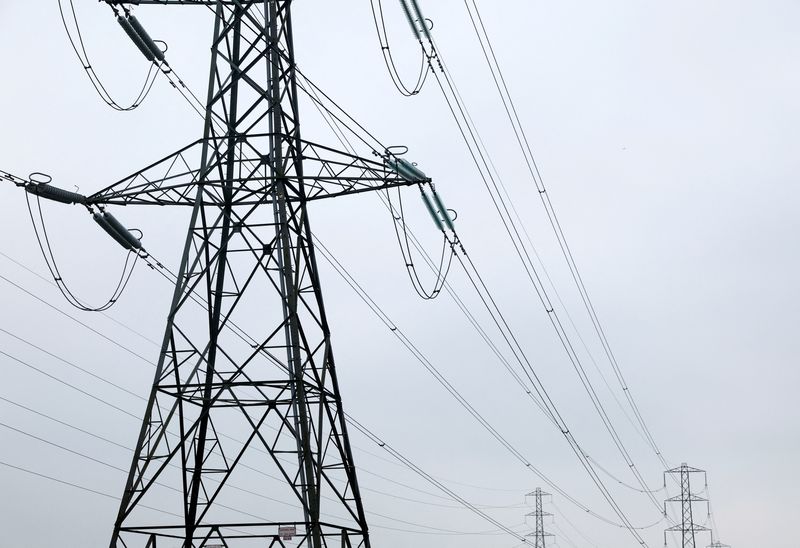By Nina Chestney
LONDON (Reuters) - Millions of British households will have cheaper energy bills from October after British energy markets regulator Ofgem cut its price cap again to reflect a further fall in wholesale power and gas prices.
Ofgem on Friday lowered its price cap on household energy bills by about 7% from Oct. 1 to 1,923 pounds ($2,418.56) a year for a typical dual-fuel household.
The drop will save households an average of 151 pounds compared with the previous quarter, Ofgem said.
The drop also represents the lowest level since October 2021 and reflects further falls in wholesale energy prices as the market stabilises and suppliers return to a healthier financial position after four years of losses, it added.
Wholesale power and gas prices hit record highs in Britain and Europe last year after Russia's invasion of Ukraine cut gas supplies.
Although wholesale gas and power prices have fallen by about 85% and 80% respectively since record highs in the first quarter of last year, there is still price volatility and the price cap remains well above the average before the energy crisis took hold.
"It is welcome news that the price cap continues to fall. However, we know people are struggling with the wider cost of living challenges and I can’t offer any certainty that things will ease this winter," said Ofgem Chief Executive Jonathan Brearley.
About 29 million customers are on standard rate tariffs protected by the price cap, which was introduced in 2019 to protect consumers.
"As we head into the colder winter months, uncertainty remains around the outlook and many will be hoping for a mild winter. Current estimates are that prices could increase again in January and will remain at these higher levels for the foreseeable future," said Simon Virley, vice chair and head of energy and natural resources at KPMG.
British Prime Minster Rishi Sunak told reporters that the government was working to bring down inflation to further ease the cost of living burden on households.
British inflation has been slow to fall since it hit a 41-year high of 11.1% last year, and at 6.8% in July was the highest of any major economy.
Ofgem sets the cap using a formula that includes suppliers' network costs and environmental and social levies, with wholesale energy prices the largest factor. It reviews the cap every quarter to reflect movements in the wholesale market.
It said that while the cap has helped to protect households from the full extent of surges in wholesale prices over the last two years, it is a "blunt tool" and it is important to look at alternative mechanisms to assess whether they would work better in the current volatile price environment.
Ultimately, however, any decision about whether reform of the price cap is needed is up to the government, Ofgem officials told reporters.

The regulator also said it has introduced measures to reduce costs for customers on pre-payment meters and hopes to have a code of conduct in place by winter for energy supplier behaviour.
($1 = 0.7951 pounds)
